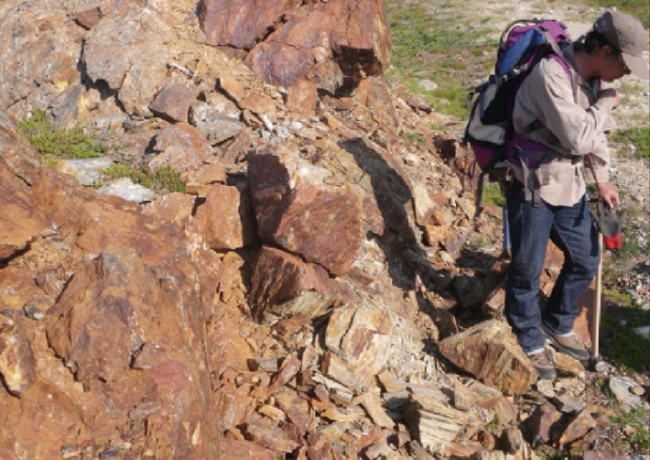Ancient sedimentary rocks in Labrador have been found to contain the oldest-known evidence of life on Earth.

Grains of graphite — one of the purest forms of carbon — lodged between the rocks were dated to 3.95 billion years, researchers report in a study published in the journal Nature.
The findings suggest that rudimentary life emerged on the planet relatively soon (around 500 million years) after the Earth was formed, and while it was still being bombarded by asteroids.
READ MORE: 10-year-old boy trips over 1.2M-year-old fossil while on desert hike
For the study, researchers from the University of Tokyo analyzed the chemical composition of graphite obtained from rocks in the Saglek block in northern Labrador, across the Labrador Sea from Greenland. They concluded that the material was biogenic, meaning it was produced by living organisms rather than geological processes.
However, the exact identity of those organisms remains unknown, and requires further exploration.
It’s not the first time Canadian rock formations have been credited with harbouring ancient signs of life. In March, microfossils found in northern Quebec were reported to be between 3.77 billion and 4.28 billion years old.
WATCH: Fossils found in Quebec rock could be Earth’s earliest sign of life
- Stuck in B.C. lagoon for weeks, killer whale calf is finally free
- Invasive strep: ‘Don’t wait’ to seek care, N.S. woman warns on long road to recovery
- T. Rex an intelligent tool-user and culture-builder? Not so fast, says new U of A research
- Nearly 200 fossil fuel, chemical lobbyists to join plastic treaty talks in Ottawa

But the graphite in those samples was not conclusively proven to be biogenic, point out the University of Tokyo scientists.
They added that the “discovery of the biogenic graphite… will provide insight into early life not only on Earth but also on other planets.”




Comments